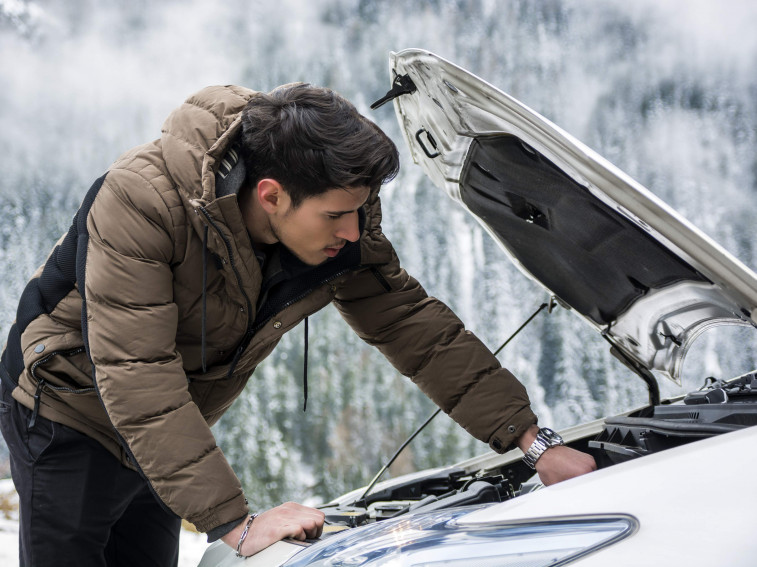Winter can be tough enough on people, but it’s especially tough on cars. Salt from the roads, frozen surfaces, and the wet, dark conditions can all have a serious impact on the way your car handles, and the way you drive it. It can be an especially difficult time of year for salvage cars, especially if they’ve undergone major repairs to become roadworthy again. So, whether you’re a private car owner, a professional dealer or a skilled mechanic, we’ve put together a handy checklist for you to run through before you take a salvage car out onto the roads.
Check the battery
If your car suddenly starts to show the strain in the chillier weather, the battery is the first thing worth checking. The dark and the wet weather means that you’ll be using the lights and heater a lot more, which takes its toll on the battery, and cold temperatures can sap some of its energy from the outset (much as it can with humans, we suppose!). It also helps to remember that batteries have an effective life of about five years, so if you can’t remember when you got yours changed, it’s worth keeping a careful eye on!
Top up the engine coolant with antifreeze
As professional mechanics (and many hobbyists) know, ideally engine coolant should be a mix of 50% water with 50% antifreeze, which protects your car from freezing temperatures of down to minus 34 degrees centigrade. Some drivers make the mistake of topping up with too much water throughout the rest of the year, which often means that when winter comes around the engine gets diluted, and freezes during cold weather. As you can probably tell, that defeats the point of antifreeze somewhat. What’s more, it can lead to the engine overheating, resulting in expensive necessary repairs.

To top up the coolant, pop the bonnet and locate the engine coolant reservoir. It’s just a quick check to ensure that the coolant levels are between the minimum-maximum markers. If they’re not, pour in a little bit more. Obviously, don’t do this after you’ve been driving, or you could easily end up scalding yourself!
Wiper blades and washer fluid
Since we’re on the topic of liquids, it makes sense for us to talk about washer fluid next. It’s a good option to select washer fluid that includes high protection against freezing, as it reduces the chances of your wiper blades from sticking to your windscreen, potentially causing damage when you try to activate them. If your wiper blades make any squeaking sounds or smear against your windscreen, it may be time to replace them. Otherwise, you risk scratching the windscreen if the rubber is worn away. They also need to be in good condition to deal with the wet, muddy or salty roads, as it typically means greater amounts of spray hitting your windscreen.
Inspect the condition of the tyres
Your tyres are essential to your ability to properly brake and steer, so don’t let them escape your attention when you’re checking over your auction car for winter. The typical minimum pressure depth for tyres is 1.6mm, but it’s not a bad idea to bring them up to 3mm, as this improves their grip. If you’ve got the equipment and skills, it might be a good plan to change from summer to winter tyres.

Brighten up your exterior lights
The darker nights, sleet, rain and hail can all affect your visibility to other road users, as well as your own ability to pick them out. That means checking your lights (front and back) is one of the single most important jobs you can do before taking your salvage car out on the roads, especially if it’s been repaired from a previous collision. Remember, the lights need to be positioned correctly, and be completely free from salt and dirt. Be careful about your choice of cleaner, too - a damp cloth will help you to avoid scratching the lenses.
Don't forget your brakes
If you’ve got the skills and ability to do so, it’s never a bad idea to check the brake pads, brake discs and brake fluid to make sure they’re firm, fast and responsive. Braking distances are far longer on average during winter, so paying special attention to them is always wise. While you’re checking the essentials, the fan belt and the alternator drive belts will need to be sufficiently tight and functional, and all electrical components need to be in decent condition and fully secure.
Sometimes of course, you may realise that the car might not survive a trip out onto the winter roads, or wouldn’t be safe to drive either way. If that’s the case, we’ve got you covered here at RAW2K. We’ve got no shortage of salvage cars amongst our online car auctions, from leading manufacturers such as Peugeot, Mercedes and Renault. Why not take a look around, and see what you can find?




